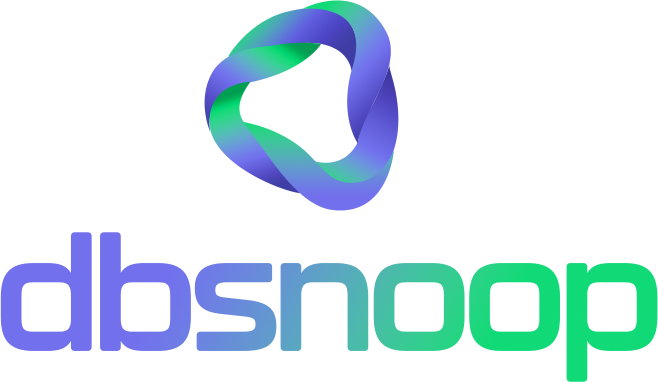
Prometheus is an open-source monitoring platform designed to collect, store, and query metrics in real-time, especially in distributed and cloud-native environments. Developed by the Cloud Native Computing Foundation (CNCF), Prometheus has become a popular choice among DevOps engineers and system administrators operating in dynamic IT environments like microservices and containers.
In this article, we’ll explore what Prometheus is, its main features, and how it can help monitor and optimize your IT infrastructure.
Key Features of Prometheus
- Pull-Based Metrics Collection: Prometheus uses a pull model to collect metrics by periodically pulling them from endpoints on services and applications. This ensures that collected metrics are robust and flexible, especially in dynamic environments.
- Microservices Monitoring: Prometheus is widely used to monitor cloud-native architectures, such as Docker and Kubernetes, offering a comprehensive view of the performance of each component within a distributed system.
- Time Series Database: Prometheus stores the collected metrics in a time series database (TSDB) for historical analysis and performance monitoring over time.
- Integrated Alerting System: With Alertmanager, Prometheus provides an integrated alerting system based on customizable conditions, such as high CPU usage or application degradation.
- Advanced Query Language (PromQL): Prometheus Query Language (PromQL) allows advanced querying and complex analysis of metrics stored in the time series database, helping to create detailed performance reports.
- Grafana Integration: Prometheus is often used with Grafana to visualize data through custom dashboards, enabling detailed analysis of systems’ performance.
- Flexibility and Scalability: Prometheus can be scaled efficiently for both local and distributed environments, making it ideal for large-scale IT infrastructures.
- Exporter Integration: Prometheus can collect data from various services through exporters, which expose metrics from different platforms, applications, and services.
- Federation Support: Prometheus supports federation, a technique for scaling distributed environments while maintaining a unified view of metrics.
How Does Prometheus Work?
Prometheus collects metrics from endpoints exposed by services and applications via exporters. It does this using a pull model, where Prometheus periodically polls these endpoints to gather data about the health and performance of services. The collected metrics are stored in the time series database, allowing for advanced querying and efficient storage.
Prometheus is often combined with Grafana for creating visual dashboards, which allow real-time tracking of metrics and infrastructure monitoring.
Benefits of Using Prometheus
- Ideal for Dynamic Environments: Prometheus is perfect for cloud-native architectures based on microservices and containers, such as Kubernetes, due to its flexibility in monitoring dynamic environments.
- Automation and Simplicity: Prometheus is a self-contained platform that doesn’t require external dependencies, making it easy to implement, scale, and adapt to infrastructure changes.
- Real-Time Data Collection: With its pull-based model, Prometheus can collect data in real time, enabling rapid response to service outages and performance issues.
- Custom Alerts with Alertmanager: Integrated with Alertmanager, Prometheus provides customized alerts based on service failures, performance issues, and other critical conditions.
- Integration with Visualization Tools: Prometheus is frequently integrated with Grafana, allowing for versatile monitoring and visualization of real-time metrics.
- Scalability for Large Infrastructures: Prometheus is designed for scalability, handling both local and large-scale distributed environments for real-time monitoring.
- Open Source and Community-Driven: As an open-source platform, Prometheus has a vast community of developers who contribute to its continued evolution and improvements.
Why is Prometheus Ideal for Companies of All Sizes?
Prometheus is ideal for organizations operating in dynamic, cloud-native environments, from startups to large corporations that require robust and flexible monitoring of services and applications.
- Startups & SMEs: Smaller organizations can benefit from Prometheus’ advanced monitoring capabilities without needing extensive infrastructure to support it.
- Large Corporations: Companies with extensive infrastructures or those operating Kubernetes-based environments can leverage Prometheus for monitoring thousands of microservices and ensuring optimal performance at scale.
- Companies with Cloud-Native Architectures: Prometheus is designed for organizations that adopt cloud-native architectures and microservices, benefiting from its capacity to monitor and alert on performance of distributed components in real-time.
Comparison Between Prometheus and Other Tools
Prometheus stands out for its flexibility and focus on cloud-native environments. Here’s a quick comparison between Prometheus and other popular tools:
- Prometheus vs. Zabbix: Zabbix is a traditional monitoring tool better suited for non-cloud-native infrastructures, while Prometheus excels in cloud-native environments.
- Prometheus vs. Nagios: Unlike Nagios, which is widely used for IT infrastructure monitoring, Prometheus is ideal for dynamic environments like containers and Kubernetes.
- Prometheus vs. Grafana: While Grafana is mostly used for data visualization, Prometheus collects and stores metrics. Prometheus can be easily integrated with Grafana for a complete monitoring solution.
- Prometheus vs. Sensu: Sensu offers a hybrid monitoring model, while Prometheus is specialized in time-series metrics and provides a more robust solution for real-time data collection and monitoring.
Prometheus Pricing
Prometheus is an open-source platform that is completely free to download and use. This makes it an excellent choice for companies looking for cost-effective solutions. Additionally, the Prometheus community offers continuous support through documentation, forums, and developer contributions.
Conclusion
Prometheus is a robust solution for monitoring metrics and collecting time-series data, designed to address the needs of modern IT environments, including microservices, containers, and cloud-native infrastructures. Its self-contained architecture allows easy implementation, while its flexibility allows for the scaling of data collection across large infrastructures. Prometheus is widely used by companies of all sizes to maintain the health and performance of their systems.
At dbsnOOp, we integrate Prometheus into our database observability solutions, leveraging its real-time capabilities for monitoring large infrastructures. While Prometheus is excellent for time-series metrics and general IT infrastructure monitoring, dbsnOOp brings specialized functionalities for in-depth database analysis, using predictive insights based on AI to enhance MTR, reduce downtime, and improve SLA compliance.
If your organization requires deeper insights into database performance and needs advanced analysis features, dbsnOOp is a cost-effective and strategic choice to complement Prometheus in achieving optimized infrastructure monitoring.
Give it a try for 14 days, no burocracy, no credit card
Learn more about Flightdeck!


